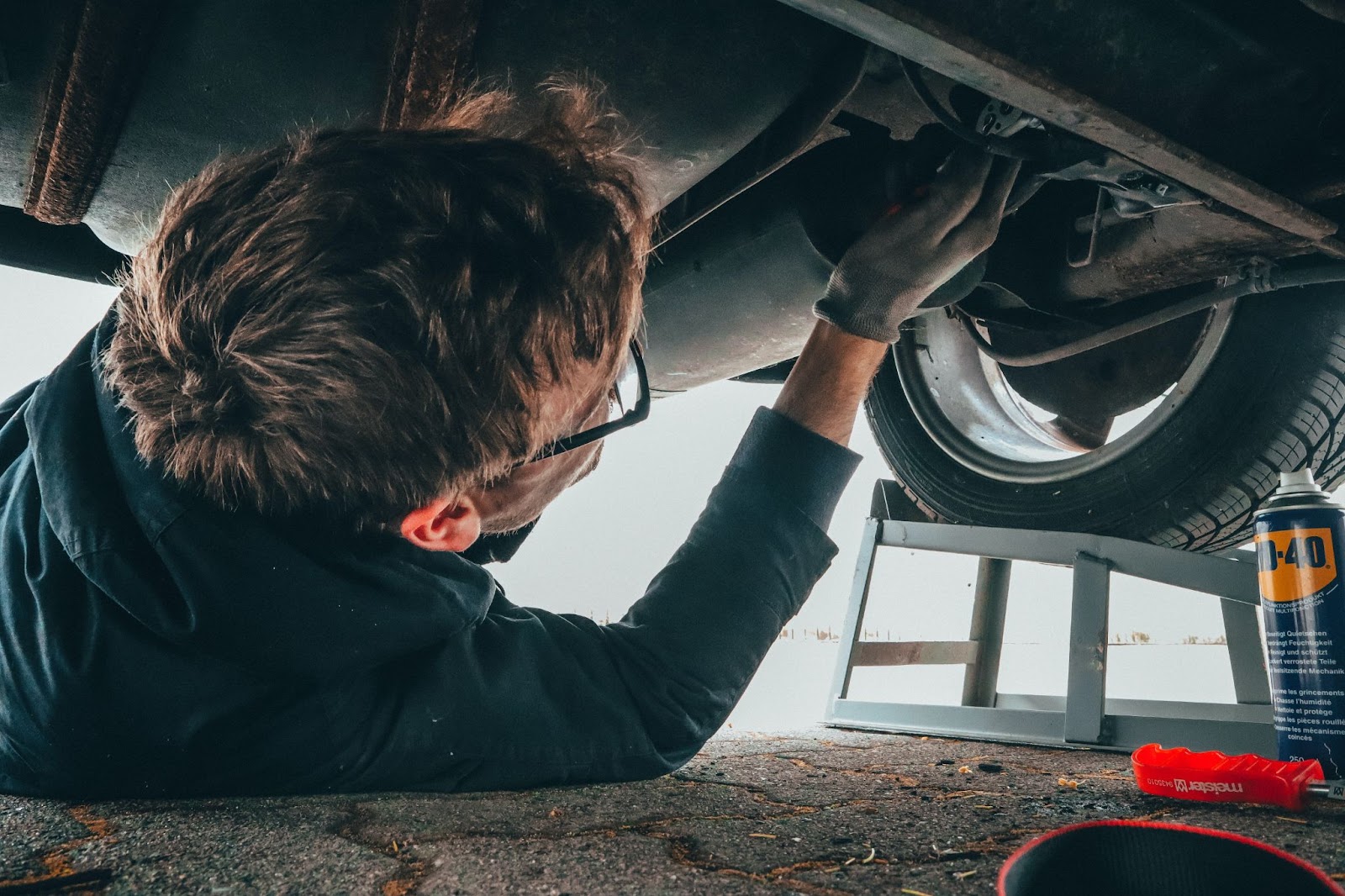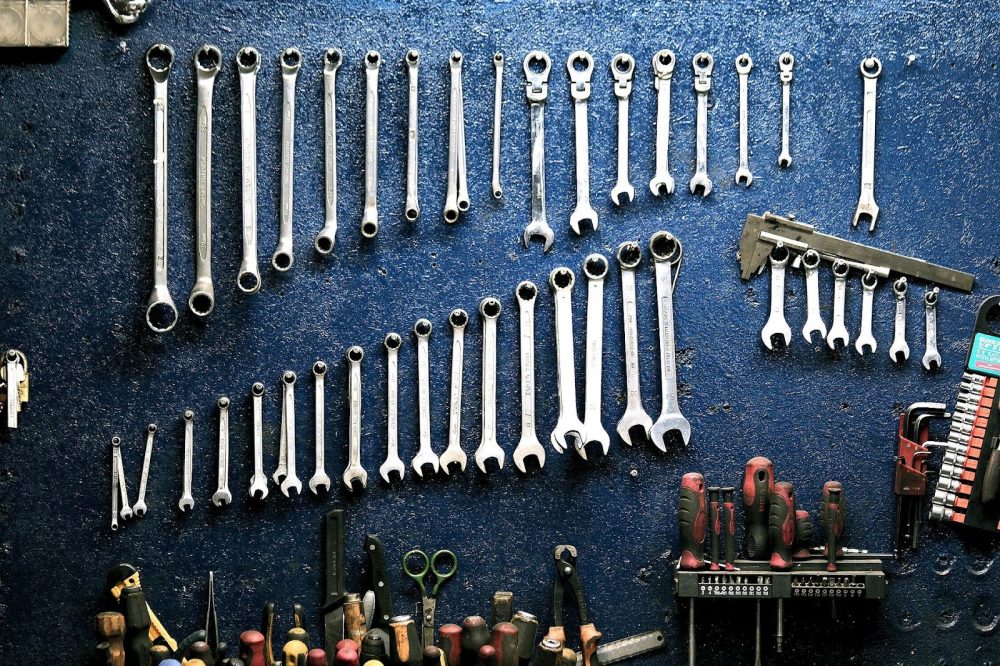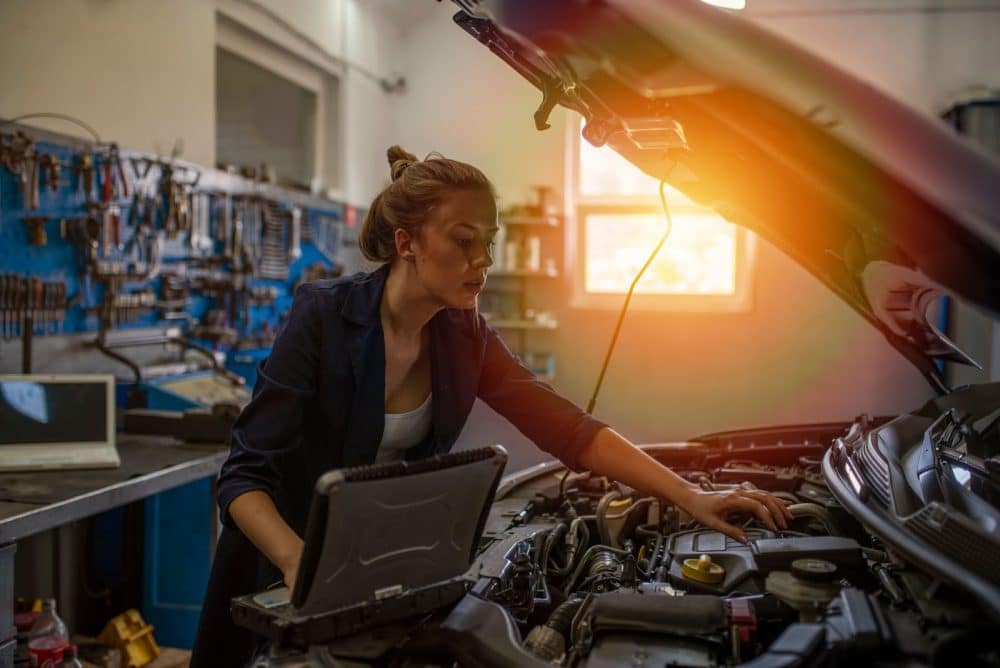
What Types of Mechanic Insurance Do You Need?

Mechanics are the doctors of the transportation industry. The rest of us rely on you to keep our cars, boats, planes, and other vehicles running.
Almost everyone has some form of transportation, and it will eventually require servicing. You have the skills and know-how to run a mechanic business, and there’s an incredibly vast market of clients that need your help.
Just as you would advise your customers to focus on preventative care for their car, you too should take precautions.
Which kinds of insurance do mechanics need?
Read on to find out!
Learn how to obtain self-employment insurance in your field:
Freelance Disability Insurance | Freelance Ghost Insurance | Freelance Workers Comp Insurance | Freelance Critical Illness Insurance | Freelance E&O Insurance | Freelance Airbnb Host Insurance | Freelance Commercial Auto Insurance | Freelance Commercial Property Insurance | Freelance Utah Home Insurance | Freelance Amazon Flex | Freelance Carpet Cleaning Insurance | Freelance Window Cleaner Insurance | Freelance Pressure Washer Insurance | Freelance Electrician Insurance | Freelance Junk Removal Insurance | Freelance Bartender Insurance | Freelance Hair Stylist Insurance | Freelance Barber Insurance | Freelance Taskers Insurance | Freelance Web Designer Insurance | Freelance Doordash Driver Insurance | Freelance Uber Driver Insurance | Freelance Plumber Insurance | Freelance Writer Insurance
1. General Liability Insurance
While general liability insurance isn’t mandatory, it might be the most important type of coverage. Working without it is a massive risk.
General liability policies protect you from lawsuits if someone claims that your business caused harm to them or their property.
Can your small business recover from the substantial costs of a lawsuit? If not, you should invest in general liability insurance.
Liability coverage can also open up business opportunities. You may need general liability insurance to rent commercial property or secure contracts with larger vendors.
Why Mechanics Need General Liability Insurance
Here are some of the situations you might encounter in which it would benefit you to have general liability insurance for your auto repair business:
Customer Personal Injury
Injuries are common in the vehicle-repair industry. Liability insurance protects you in case someone blames you for their injury.
Say an oil patch or a tool is sitting out in your body shop. You knew it was there, and you planned on picking it up when you finished what you were doing.
In the meantime, a customer walks in, trips or slips, and is injured. They sue, and your business ends up in a potentially million-dollar claim.
Customer Property Damage
Property damage can also lead to lawsuits. You work with expensive vehicles and tools, and you need protection in case damage occurs.
Here’s a probable scenario:
You and a subcontractor have a customer’s car ready to go up on the lift to install a new carburetor. Your subcontractor stumbles while carrying the carburetor over to the car, and it lands on the car’s hood.
No one is hurt, but the carburetor is damaged, and so is your customer’s vehicle. Both expenses come out of your pocket — unless you have auto mechanic insurance with general liability coverage.
Accidents can happen anytime, anywhere, but they’re more expensive when they involve vehicles.
Related: How to Become a Freelance Mechanic
2. Garage-keeper’s Insurance
Garage-keeper’s liability insurance is designed for auto dealerships, trailer dealers, and those running a body shop or auto service department. This insurance covers the business owner when there’s damage to the customer’s vehicle or any equipment.
It’s similar to general liability insurance but offers expanded coverage.
Three Main Types of Garage-keeper’s Coverage
There are three primary options for garage liability insurance:
- Legal liability
- Direct primary
- Direct excess
Legal Liability Coverage
Legal liability coverage protects the vehicle if damage occurs due to negligence on behalf of the garage owner or their employees.
For instance, your policy covers the physical damage if you take the car out for a test drive and get in an accident.
Direct Primary Coverage
Direct primary policies kick in no matter who is liable.
You aren’t responsible whether your garage is vandalized, a customer’s car is stolen, or a catastrophic event causes damage.
Direct Excess Coverage
Direct excess insurance covers any extra fees not included by other policies. It takes care of any fees you have to pay out of pocket, like deductibles.
Note: All automotive repair shops should have some form of garage-keeper’s insurance. Mobile mechanics don’t need to worry about this type of insurance.
3. Errors and Omissions Coverage
One step beyond garage-keeper’s liability is errors and omissions coverage (E&O).
Your garage-keeper’s policy takes care of comprehensive and collision, but what if damage occurs due to faulty work by your mechanics? Or the car suffers a mechanical breakdown due to defective parts?
That’s why you need E&O.
The two types of insurance policies we discussed above don’t cover faulty work or defective products. These types of repairs are specifically mentioned in the fine print of most garage-keeper’s contracts.
Why You Need E&O Insurance
You are responsible for any problems caused by the work done in your shop.
Say a customer comes in for a simple tire rotation, but your mechanic doesn’t tighten the bolts securely.
Later, a tire comes off while they’re driving. Your business is at fault for any damage to the customer or their car.
An inexpensive E&O insurance policy gives you the peace of mind of knowing one mistake won’t threaten your business.
You may also like: Alternatives to COBRA: 5 Alternatives You Haven’t Considered
4. Commercial Property Insurance

How much work can you do without the tools you’ve added to your inventory over the years?
Business property insurance covers the equipment you own or rent, as well as any income and operating expenses lost when they’re damaged.
Almost everywhere you set up shop, there’s the potential for a catastrophic event or weather occurrence to happen. What if that blizzard/hurricane/earthquake/other natural catastrophe rolled through your town and ruined your equipment?
While you’re waiting for it to be repaired or replaced, you’re losing income. You still have overhead and operating expenses to cover, even though your garage is out of commission for a while.
This type of commercial auto repair insurance helps you replace damaged property as fast as possible, and it gives you income in the meantime.
If you don’t use it, that’s wonderful; but if you need it, it’s worth the small insurance cost.
Tip: Some insurance agencies offer business owner policies (BOPs) that include general liability and business property insurance. These policies can help you save money on insurance expenses.
5. Workers’ Comp Coverage
If you have any employees or hire subcontractors, you’re going to need workers’ comp coverage, especially in a mechanic shop. The potential for one of your team to get injured is higher there than in many other jobs.
(You should have workers’ comp if you work alone, too, as it can protect your income if an injury prevents you from making money. We’ll discuss that in section #7 below.)
Some states require that you have workers’ compensation coverage in place before you can conduct business. The statutes in your state determine the features your policy needs to include.
What Your Policy Covers
Workers’ compensation insurance gives employees the medical coverage necessary to get their injuries or impairments treated fast. It also provides them partial income while they’re unable to work.
The policy’s minimum limitations are up to your state. When you talk to the insurance agent, they’ll be able to guide you as to what you must have, and what you might want to consider.
Your state’s workers’ compensation department should have a list of minimum coverage on its website. Insurance prices range depending on many factors, but each policy is broken down into installment payments.
6. Health Insurance

Up until now, we’ve focused on the insurance policies necessary to protect your auto repair shop and employees.
However, your health is equally important.
Health insurance is vital for a small business owner. A small cold can put you out of work for days. The sooner you visit the doctor, the faster you can be back on your feet.
The Importance of Healthcare Insurance
Health coverage also gives you access to treatment and preventative care. Identifying problems like cardiovascular disease, cancer, and diabetes early could mean a simple fix rather than a long, drawn-out medical condition.
What if you end up with a catastrophic injury or illness? A severe heart attack, for example, averages around one million dollars in direct and indirect costs.
Sure, that hefty $2,000 deductible sounds like a lot when you’re paying it in small doctor bills, but it’s a drop in the bucket when it ends up covering massive hospital bills.
Types of Healthcare Coverage
We get it: as a small business owner, you’re limited in the types of healthcare coverage you can afford. You do have options, though.
Head over to the Healthcare Marketplace for a free insurance quote to see what kind of plans you qualify for. With the government’s focus on affordable healthcare, various plans and premiums are available to you.
After that, stop by Selfgood to check out our discounted membership healthcare and indemnity coverage options.
Selfgood has a large membership pool of gig workers and self-employed business owners around the country. This gives us access to volume discount rates on indemnity insurance plans that you can take advantage of.
7. Disability and Life Insurance
Speaking of protecting your finances, what if that illness or injury is so substantial that you can’t work? Or, although no one wants to consider this, what happens to the business and your family if you die?
Insurance companies consider automotive work to be one of the riskiest businesses. You’re frequently in dangerous situations, so having disability and life insurance policies is a strategic financial choice.
Short-Term vs. Long-Term Disability Insurance
Consider investing in disability insurance. The premiums are usually affordable, and the policy pays you an income while you’re recovering from an accident or illness.
Short-term coverage only provides your income for a limited period, usually up to two or three years. It kicks in within two to three weeks after your medical condition forces you out of work.
Long-term coverage, on the other hand, can give you an income until you retire. It may take longer to get your first payout, though, since you have to prove that the condition is permanent.
This means you’ll have to see a doctor for a few months, at least, before you start receiving any disability income. To avoid this delay, many business owners take out a short-term policy and a long-term one.
Whole Life vs. Term Life Insurance
In the worst-case scenario, life insurance coverage ensures your loved ones are taken care of when you’re gone.
Let’s talk statistics for a minute. There’s a reason insurance companies don’t like to cover anyone involved in automotive work.
The occupational hazards are almost endless:
- Strains, sprains, and tears
- Chemical burns
- Eye damage
- Loss of limb
- Fatal accidents
You know the risks of working in an auto shop. If you want to provide an income for your family in the case of an accident, you need life insurance.
There are two types you can choose from: whole life and term life.
Term life tends to be less expensive because it only covers you for a predetermined period (usually ten to twenty years).
The whole life is more expensive, but you keep the same rates and don’t need to re-qualify as you get older.
At a minimum, you should have a term life policy. Because it’s cheaper, you may be able to carry a higher death benefit.
Here are some other articles you might find helpful:
Who Needs Self-Employed Business Insurance?
Should You Register as a Sole Proprietor or LLC?
How to File Taxes When You’re Self-Employed
Conclusion
You use safety goggles, face shields, and coveralls to protect yourself and your employees. You cover your finances with insurance policies.
Some of these policies are legally required for you to be in business, while others are valuable business assets that will come in handy in emergencies.
It’s wise to have as much business insurance coverage as you can afford.
At Selfgood, we provide supplemental insurance to fill in the gaps in your other insurance policies. Learn more about our health benefits and financial/legal benefits today!
Subscribe To SelfGood
Get up to date perks and Gigworker news. Easy. Simply. SelfGood. Subscribe.





